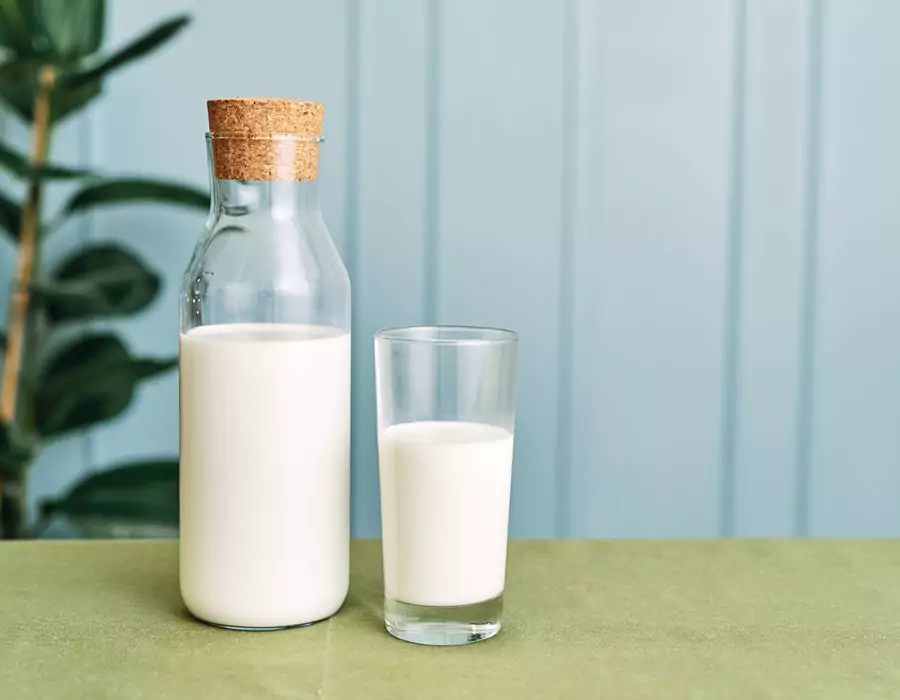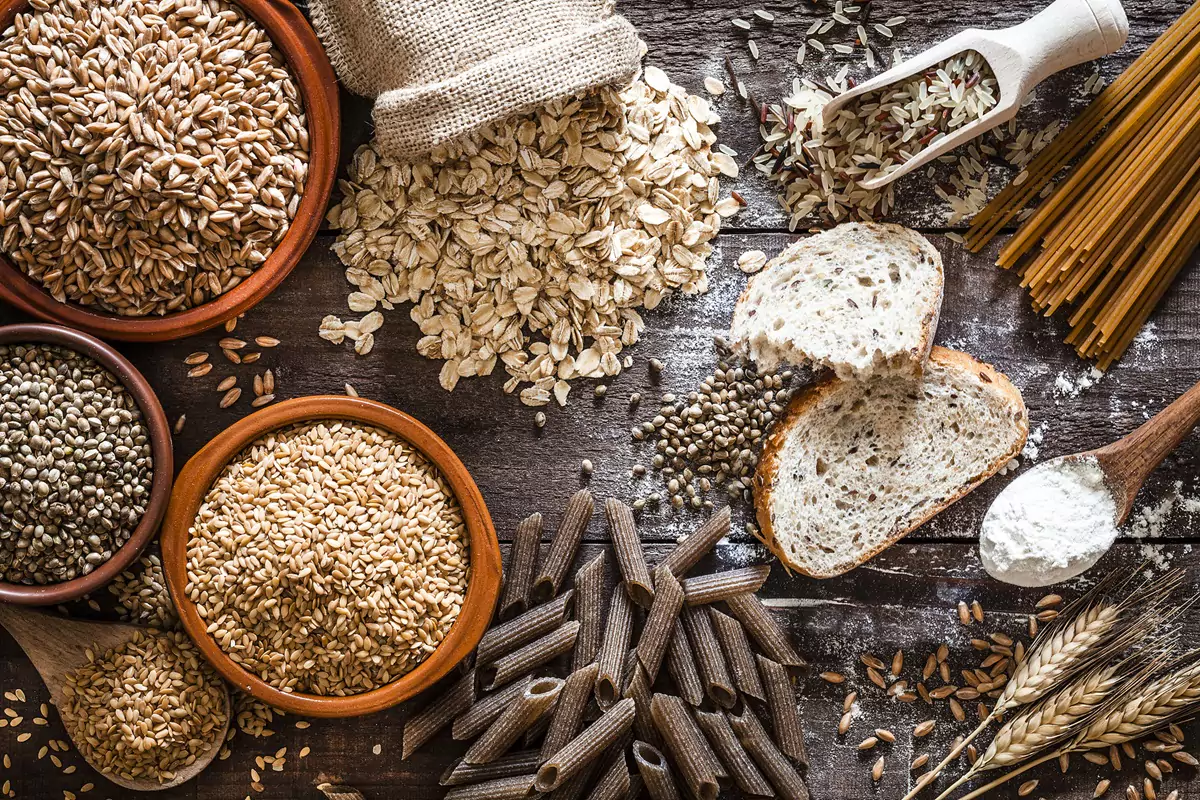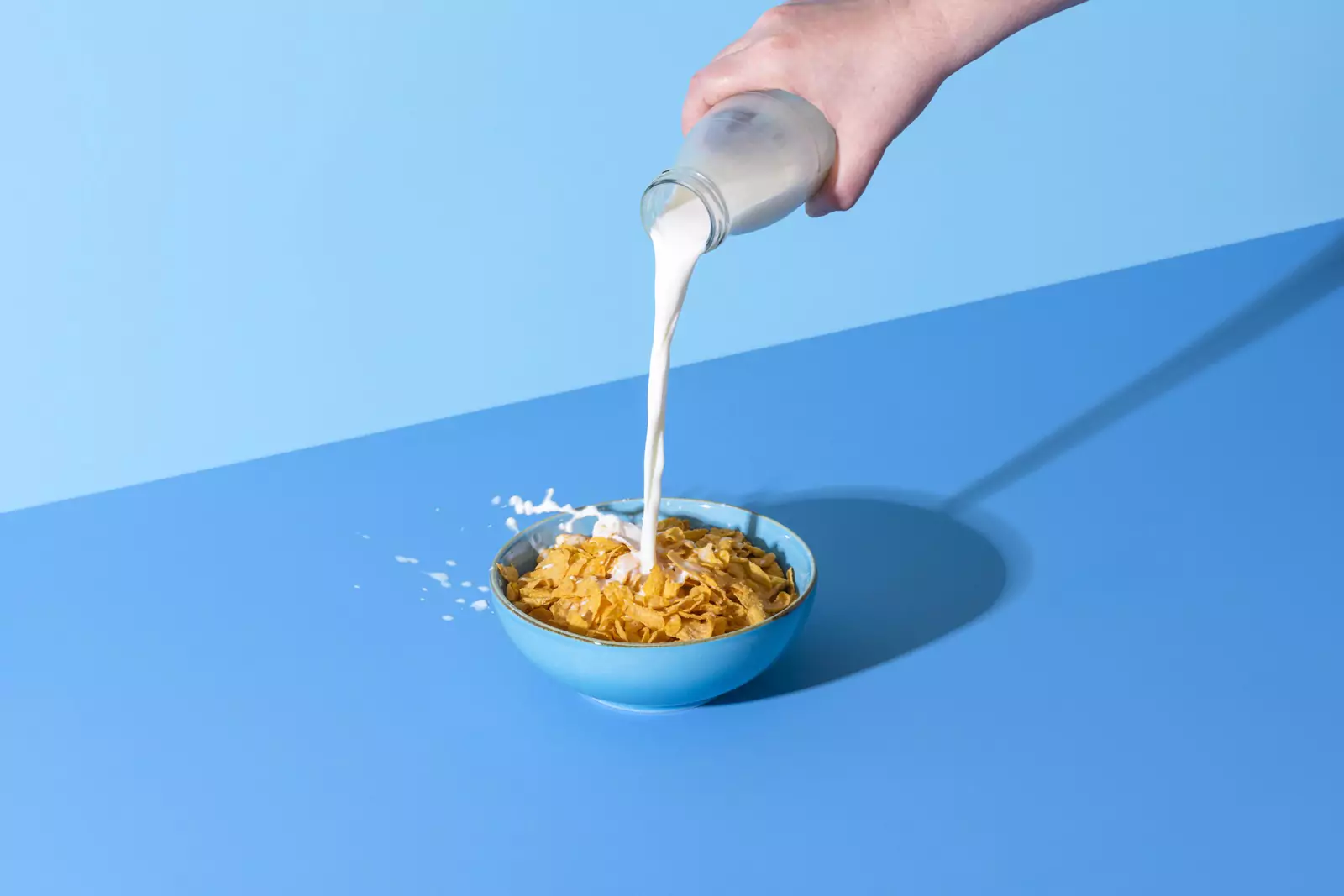
UP TO 40% OFF SITEWIDE





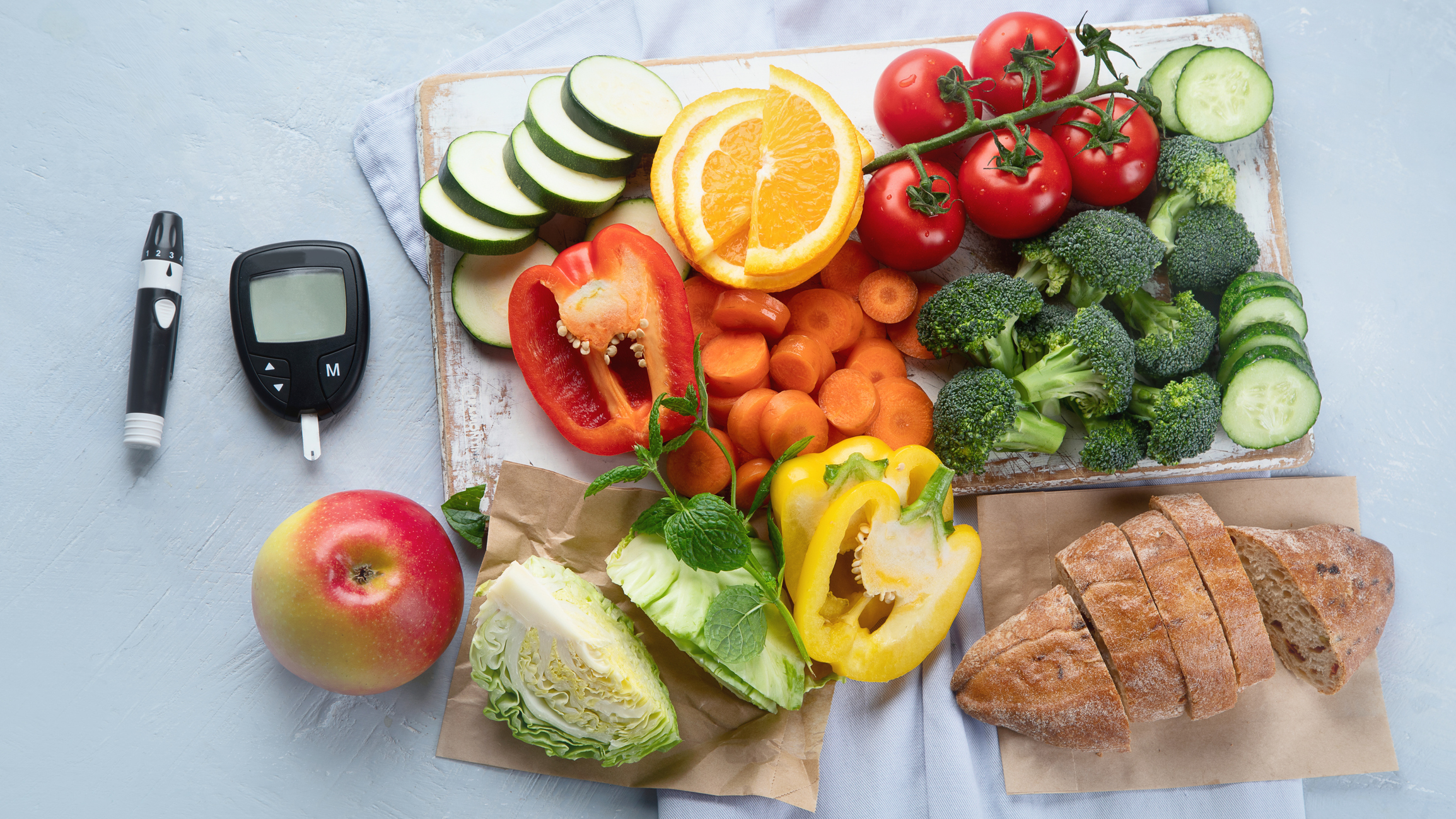
Best and Worst Foods for Diabetes: A Complete Guide


Table of Contents
- Understanding the Impact of Food on Blood Sugar Levels
- The Carbohydrate Role and Impact on Blood Sugar Levels
- The Power of Fiber
- The Best Foods for Managing Diabetes
- Whole Grains
- The Benefits of Leafy Greens
- Fatty Fish: A Superfood
- Berries: A Sweet Solution
- SugarMD Super Berberine
- Foods to Avoid When Managing Diabetes
- The Dangers of Sugary Drinks
- Trans Fats: Hidden Dangers in Your Food
- White Bread, Pasta and Rice
- High-Fructose Corn Syrup: A Sweet Danger
- The Role of Diet in Diabetes Management
- Conclusion
- Frequently Asked Questions (FAQs)
- Is fruit bad for diabetes?
- Can I ever have sweets if I have diabetes?
- Are all carbohydrates bad for diabetes?
- Can diet alone control diabetes?
- Is sugar the only thing to avoid in a diabetic diet?
- About The Author
When it comes to managing diabetes, what you eat plays a critical role. A diet filled with good nutrition can help you maintain a healthy weight and control your blood sugar levels, keeping diabetes in check. Are you keeping an eye on the best and worst foods for diabetes?
Understanding the Impact of Food on Blood Sugar Levels
Food's impact on blood sugar levels is a fundamental concept for anyone living with diabetes. Our bodies turn the food we eat into glucose or sugar to function optimally. But when we talk about blood sugar levels, carbohydrates and fiber come into the spotlight. Let's dissect these two essential aspects of diet and their role in diabetes management.
The Carbohydrate Role and Impact on Blood Sugar Levels
Carbohydrates, or carbs as they are commonly known, play a significant role in our diets. They are found in a wide range of foods, including fruits, vegetables, bread, grains and dairy products. During the digestion process, our bodies convert these carbs into sugar which is then released into the bloodstream.
This physiological process, however, can cause a spike in blood sugar levels, especially for individuals with diabetes. Now, does this mean we should avoid carbs like the plague? Certainly not! Carbohydrates act as the primary fuel source for our bodies, providing the energy needed for various physiological functions and activities. Completely eliminating them from our diets could lead to fatigue, nutrient deficiencies and other health problems.
Here's where the story gets interesting – not all carbs are created equal. They are broadly classified into two types: simple and complex. Simple carbs, found in sugary drinks, cookies and white bread, are rapidly absorbed by the body, causing quick blood sugar spikes. On the other hand, complex carbs, found in whole grains, beans and vegetables, are digested slower, leading to a more gradual rise in blood sugar levels.
The trick therefore, lies in choosing the right type of carbs. Opt for complex carbohydrates that have a low glycemic index. Foods such as brown rice, oatmeal and whole grain bread are much healthier choices that won't cause your blood sugar levels to skyrocket.
The Power of Fiber
If carbohydrates are the fuel for our bodies, consider fiber as the regulator that keeps things running smoothly. Fiber is found in foods like fruits, vegetables, whole grains and legumes and plays a crucial role in the diet of individuals with diabetes. Why is fiber so crucial for people with diabetes? The magic of fiber lies in its ability to slow down the digestion process.
When food is digested more slowly, sugar is released into the bloodstream at a more gradual rate which can help prevent those dreaded blood sugar spikes. But that's not all. Fiber also helps to promote feelings of fullness which can prevent overeating – a key aspect of maintaining a healthy weight and managing diabetes.
A high-fiber diet also aids in digestion, helps lower cholesterol levels and reduces the risk of heart disease. Adding more fiber to your diet doesn't have to be complicated. Start with small changes. Substitute white bread with whole-grain bread, or add some fresh fruits and vegetables to your meals. Try including legumes like lentils and chickpeas in your diet and opt for brown rice instead of white.
The Best Foods for Managing Diabetes
Whole Grains
Have you ever considered whole grains as a prime component in your diet, especially if you're someone dealing with diabetes? Whole grains ought to be your best allies in the battle against diabetes and here's why.
Whole grains are packed with dietary fiber, an essential component that offers excellent control over blood sugar levels. But what are whole grains, exactly? They're grains that have all parts of the grain — the bran, germ and endosperm. Foods made from these grains are rich in fiber which slows down the absorption of glucose into your bloodstream and prevents spikes in your blood sugar level.
Examples of whole grains include foods like brown rice, oatmeal, whole grain bread and quinoa. The magic of whole grains doesn't end there. They also bring along a multitude of other health benefits such as aiding in digestion, helping in weight management and reducing the risk of heart disease. Moreover, whole grains contain essential nutrients such as vitamins, minerals and antioxidants that contribute to overall health. Incorporating whole grains into your daily diet therefore, does more than just keep your diabetes in check — it significantly uplifts your health and wellbeing.
The Benefits of Leafy Greens
Leafy green vegetables are another essential food group that holds a significant place in a diabetic diet. The reasons are plentiful. Leafy greens are high in dietary fiber, yet they are low in calories and carbohydrates. This unique combination makes them an ideal food for people with diabetes. When we talk about leafy greens, we refer to vegetables like spinach, kale, collard greens and other greens.
These veggies are low in digestible carbs which raise your blood sugar levels and high in fiber that helps control these levels. But the perks of leafy greens extend beyond fiber. They are teeming with several vital nutrients like Vitamin A, C, E, K and several B-vitamins. They are also rich in minerals like iron, calcium and potassium.
The cherry on top is that leafy greens are loaded with antioxidants that boost your immune system and combat inflammation. So it's a good idea to make these nutrient-dense leafy greens a regular on your dinner plate!
Fatty Fish: A Superfood
Fatty fish is yet another superfood that's highly beneficial for people with diabetes. But why does fatty fish win such high praise? The answer lies in their high content of omega-3 fatty acids, a type of fat that's good for your heart. Fatty fish, like salmon, mackerel, sardines, trout and albacore tuna, are loaded with omega-3 fatty acids which are known to reduce inflammation, lower blood pressure and decrease triglycerides.
Apart from heart health they also play a role in blood sugar control, thus earning them a spot on the diabetes superfood list. Adding to their superpowers, fatty fish are a great source of high-quality protein which helps you feel full and increases your metabolic rate. It is noteworthy that grilled or baked fatty fish can be a healthier choice over fried or breaded versions.
Berries: A Sweet Solution
Berries might seem like a sweet treat, but they're a bona fide powerhouse of fiber, vitamins and antioxidants. These characteristics make them an ideal addition to a diabetic diet. Berries, including blueberries, strawberries, blackberries and raspberries, might satisfy your sweet tooth, but unlike refined sugar products they won't cause a sudden sugar spike.
Thanks to their high fiber content the sugar in berries is slowly absorbed into your bloodstream which helps maintain a stable blood sugar level. Moreover, berries are loaded with antioxidants, compounds that fight inflammation and protect your cells from harmful free radicals. Some berries even have properties that can improve insulin sensitivity, making them even more desirable for individuals with diabetes.
Incorporating these superfoods into your diet not only offers an array of flavors but also aids significantly in the management of diabetes. From whole grains and leafy greens to fatty fish and berries these foods pave the way towards a healthier life and improved diabetes control.
Please note that while diet plays a vital role in managing your blood sugar levels, it's essential to consult with a healthcare provider or a dietitian before making significant dietary changes. They can provide you with a personalized diet plan based on your specific needs and conditions.
SugarMD Super Berberine

SugarMD Super Berberine is a superior supplement for those seeking to maintain healthy glucose metabolism and reduce inflammation. Unlike other supplements, it utilizes a potent blend of dihydroberberine and 100% pure Ceylon cinnamon to ensure that blood sugar remains in a healthy range. Additionally, this formula is safe and effective for long-term use. Regular use of this product will lead to a significant reduction in inflammation which is a well-known contributor to a wide range of health issues. If you're looking for a supplement that can help you maintain healthy glucose levels while reducing inflammation, SugarMD Super Berberine is the perfect choice.
Foods to Avoid When Managing Diabetes
When it comes to managing diabetes, a major key is not just about knowing what to eat, but also understanding what to avoid. Certain foods can negatively impact your blood sugar levels and overall health, making diabetes management more challenging. Let's delve deeper into some of the worst food items for individuals with diabetes.
The Dangers of Sugary Drinks
Topping the list of foods to avoid when managing diabetes are sugary drinks. Why so? Well these drinks are loaded with sugar and often contain fructose or high-fructose corn syrup, leading to rapid and significant spikes in your blood sugar levels. Sugary drinks encompass a broad range of beverages, including soft drinks, fruit punches, sweet teas and energy drinks.
Many of these beverages are ingeniously marketed as healthy or natural options. For instance, fruit juices might seem like a healthier choice, but they can contain as much sugar as soft drinks, sometimes even more. These beverages provide very little nutritional value, contributing empty calories to your diet.
The danger of these drinks is their capacity to increase blood sugar levels swiftly. Because they're liquids they're digested more quickly than solid food, causing a rapid rise in blood sugar. This not only aggravates diabetes control but also leads to weight gain and other health issues like tooth decay and increased risk of heart disease. Opting for water, unsweetened tea, or other sugar-free drinks can make a significant difference in managing diabetes.
Trans Fats: Hidden Dangers in Your Food
Next up on our list are trans fats which are often hidden in processed foods. Trans fats are industrially produced fats used to increase the shelf life of packaged foods. They're found in a myriad of products, from baked goods and snack foods to frozen dinners and fast foods.
But what makes trans fats so bad? They're incredibly damaging to your cholesterol levels: they increase your low-density lipoprotein (LDL), or "bad" cholesterol, while decreasing your high-density lipoprotein (HDL), or "good" cholesterol. This can exacerbate cardiovascular complications, a common concern for individuals with diabetes.
Moreover, research suggests that consuming trans fats can lead to insulin resistance, making it even more difficult to control blood sugar levels. The problem with trans fats is that they're not always straightforward to spot. They might be listed as "partially hydrogenated oils" on food labels, so it's essential to read labels carefully.
White Bread, Pasta and Rice
While carbohydrates are an essential part of our diet, not all carbs are created equal. Foods such as white bread, pasta and rice are high in refined carbohydrates and low in fiber. They are quickly broken down and absorbed into the bloodstream, leading to rapid increases in blood sugar levels. This process is especially problematic for individuals with diabetes, whose bodies struggle to manage these blood sugar spikes.
These foods are often a staple in many diets due to their convenience and taste. However their nutritional profile is poor. They lack essential nutrients and fiber found in whole grains which can slow down the absorption of sugar into your bloodstream and prevent spikes in blood glucose. Switching to whole-grain alternatives can significantly benefit your blood sugar control and overall health.
High-Fructose Corn Syrup: A Sweet Danger
Finally, we come to high-fructose corn syrup (HFCS), a common ingredient found in many processed foods and sugary drinks. It's a type of sweetener made from corn starch and, as the name suggests, high in fructose. While all forms of sugar can raise blood sugar levels, fructose can have more harmful effects. Some studies suggest that excessive consumption of fructose can lead to insulin resistance, a key factor in the development of type 2 diabetes.
It's also linked to obesity, a major risk factor for diabetes. HFCS is found in many foods, including sodas, candies, sweet baked goods and even seemingly healthy foods like yogurt and salad dressing. Reading food labels can help you identify and avoid foods with HFCS thereby maintaining better blood sugar control.
In short, managing your diet is a fundamental part of diabetes control. Identifying and avoiding certain foods can go a long way in helping you maintain stable blood sugar levels, minimize diabetes symptoms and live a healthier life. Remember, it's not just about restrictions, but about making healthier, more informed choices about what you consume.
The Role of Diet in Diabetes Management
The dietary choices we make are not just about satisfying our taste buds or filling our stomachs. They have far-reaching implications on our overall well-being, especially for individuals living with diabetes. When it comes to diabetes management, food choices can play an unequivocally central role, a fact that's increasingly recognized by healthcare professionals and dietitians worldwide.
One may wonder, why is diet so critical in managing diabetes? The reason lies in the direct relationship between what we eat and our blood sugar levels. Certain foods, especially those high in simple carbohydrates and sugars, can cause a rapid rise in blood glucose levels. For someone without diabetes their body can handle these sudden increases by secreting insulin.
However, for a person with diabetes their body either can't produce enough insulin or can't use insulin effectively, leading to high blood sugar levels which over time, can cause serious health complications such as heart disease, kidney damage and nerve damage.
Thus, understanding which foods to embrace and which ones to avoid or limit becomes essential in managing diabetes effectively. By familiarizing oneself with the best and worst foods for diabetes, more informed and consequently, healthier decisions can be made, directly contributing to better diabetes control.
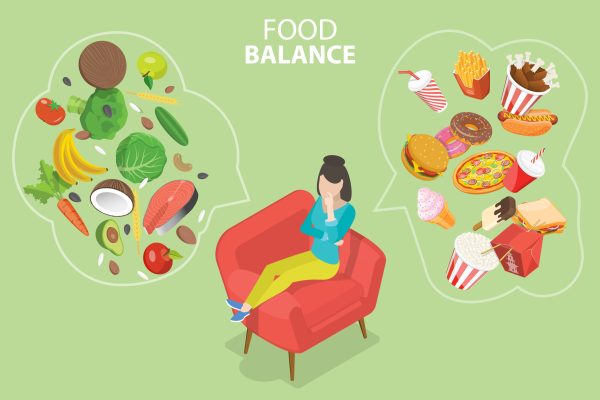
Food Balance, Choosing Between Healthy and Unhealthy Food
But what does it mean to understand the best and worst foods for diabetes? It involves recognizing the nutritional composition of foods — their carbohydrate content, fiber, fats, proteins and how these elements impact blood glucose levels. For example, foods high in fiber like whole grains and leafy greens, despite having carbohydrates, are excellent for blood sugar control because fiber slows down the digestion and absorption of sugars, leading to a slower and more controlled rise in blood sugar levels. Furthermore, knowing about foods isn't enough.
Implementing this knowledge into creating balanced, nutritious meals is the next crucial step. This may mean including more whole grains, fruits, lean proteins and vegetables in your diet while limiting the intake of processed foods high in trans fats and sugars. It's about practicing portion control, even with healthier foods, to avoid overeating and unnecessary blood sugar spikes. Indeed, dietary management in diabetes is not a one-size-fits-all approach.
Individual preferences, cultural influences and specific health needs all need to be considered. Therefore, collaborating with healthcare professionals and dietitians who can provide personalized advice based on one's unique needs is highly recommended.
Conclusion
Diabetes management is not just about medication; it's about your lifestyle and diet. Remember, balance is key. Keep the bad foods in check and add more of the good ones. With careful planning, you can enjoy a wide variety of foods while keeping your blood sugar levels stable.
Frequently Asked Questions (FAQs)
Is fruit bad for diabetes?
It's a common misconception that if you have diabetes, you should completely avoid fruits due to their sugar content. However, not all fruits are harmful for diabetes management. On the contrary, many fruits can be beneficial for people living with this condition.
Fruits, such as apples, oranges, strawberries, blueberries and cherries, are packed with fiber, vitamins and antioxidants that can play an integral role in a balanced, diabetes-friendly diet. Berries, in particular, are known for their high fiber content and low sugar content which can prevent blood sugar spikes, making them an excellent choice for individuals with diabetes. It's essential to keep in mind that moderation is key and overconsumption of even the healthiest fruits may lead to elevated blood sugar levels.
Can I ever have sweets if I have diabetes?
Living with diabetes does not necessarily mean you have to completely abandon sweets. You can occasionally indulge in your favorite sweet treats, but there are a few things to consider. Firstly, moderation is of paramount importance.
Consider sweets as an occasional indulgence rather than a regular part of your meals or snacks. Secondly, when you do have sweets, it's essential to account for them in your overall diet plan to maintain balanced blood sugar levels. Always consider the portion size and try to opt for sweets with lesser added sugars when possible.
Are all carbohydrates bad for diabetes?
Not all carbohydrates are created equal, especially when it comes to diabetes management. While it's true that carbs break down into sugars in your body and can raise blood sugar levels they are also a crucial source of energy.
Complex carbohydrates, such as those found in whole grains, legumes and certain types of fruits and vegetables, digest slowly, providing a steady energy release and preventing sudden spikes in blood sugar levels. Therefore, instead of avoiding carbs altogether, it's more beneficial to choose the right kind of carbohydrates.
Can diet alone control diabetes?
Diet undeniably plays a critical role in managing diabetes, but it's just one piece of the puzzle. In addition to a well-balanced diet, other factors like regular physical activity, consistent medication (if prescribed by your doctor), stress management, adequate sleep and regular health check-ups also play a significant role in controlling diabetes.
While diet can help maintain balanced blood sugar levels and prevent complications, it's often not enough on its own. Comprehensive lifestyle changes and a holistic approach to health are crucial for successful diabetes management.
Is sugar the only thing to avoid in a diabetic diet?
While monitoring and controlling sugar intake is important in a diabetic diet, it isn't the only thing to consider. Certain fats, especially trans fats and saturated fats, can increase cholesterol levels and the risk of heart disease which is already higher in individuals with diabetes.
Moreover, foods with a high-glycemic index which are foods that can raise your blood sugar rapidly, should also be limited. These include not only sugary foods and beverages but also white bread, white rice and some types of cereals. Opt for low-glycemic index foods, like whole grains, legumes and non-starchy vegetables which can help maintain more stable blood sugar levels.
About The Author
Meet Dr. Ahmet Ergin a highly skilled and dedicated endocrinologist with a passion for diabetes care. Dr. Ergin earned his medical degree with honors from Marmara University in Istanbul. He completed internal medicine residency and endocrinology fellowship at Cleveland Clinic.
Dr. Ergin is board-certified in Internal Medicine, Endocrinology, Diabetes and Metabolism due to his vast medical expertise. He's a certified diabetes educator, author of "The Ultimate Diabetes Book," and founder of "the SugarMD YouTube channel."
Dr. Ergin offers exceptional diabetes care to his patients in Port Saint Lucie, FL, helping them manage effectively. Disclaimer: These statements have not been evaluated by the Food and Drug Administration. Information on this website isn’t intended to treat, cure or prevent any disease. Discuss with your doctor and do not self-treat.
Written By Dr. Ahmet Ergin
464 total articles
Meet Dr. Ahmet Ergin, a highly skilled and dedicated endocrinologist with a passion for diabetes care. Dr. Ergin earned his medical degree with honors from Marmara University in Istanbul. He completed internal medicine residency and endocrinology fellowship at Cleveland Clinic. Dr. Ergin is board-certified in Internal Medicine, Endocrinology, Diabetes, and Metabolism due to his vast medical expertise. He's a certified diabetes educator, author of “The Ultimate Diabetes Book,” and founder of “the SugarMD YouTube channel.” Dr. Ergin offers exceptional diabetes care to his patients in Port Saint Lucie, FL, helping them manage effectively. For a closer look into his insights and experiences, connect with Dr. Ahmet Ergin on LinkedIn, Instagram, and YouTube.”
Disclaimer: These statements have not been evaluated by the Food and Drug Administration. Information on this website isn't intended to treat, cure or prevent any disease. Discuss with your doctor and do not self-treat.
Products







